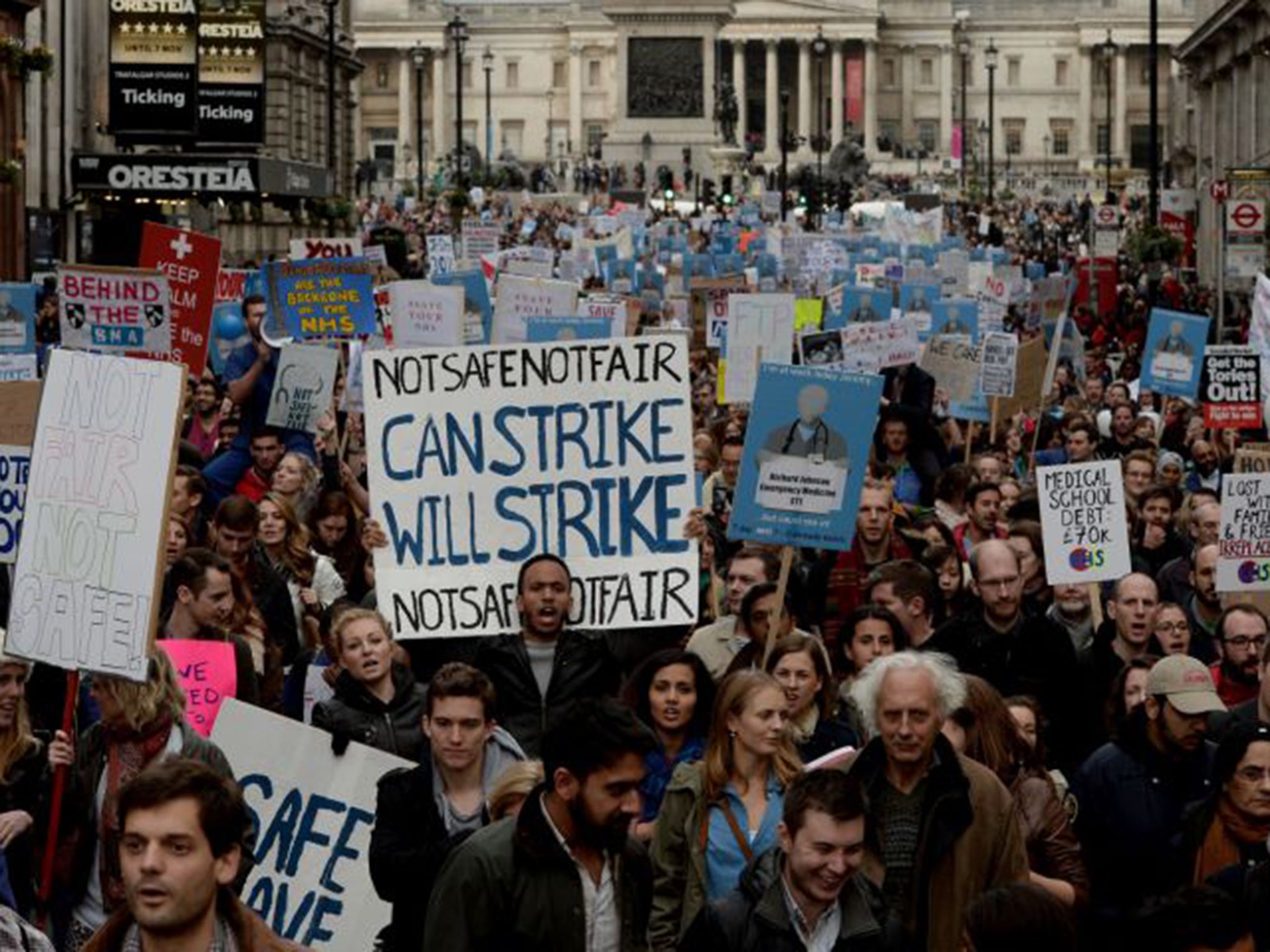Junior doctor contract: Strike action planned for three days in December if ballot approved
Ballot result is expected next week

Your support helps us to tell the story
From reproductive rights to climate change to Big Tech, The Independent is on the ground when the story is developing. Whether it's investigating the financials of Elon Musk's pro-Trump PAC or producing our latest documentary, 'The A Word', which shines a light on the American women fighting for reproductive rights, we know how important it is to parse out the facts from the messaging.
At such a critical moment in US history, we need reporters on the ground. Your donation allows us to keep sending journalists to speak to both sides of the story.
The Independent is trusted by Americans across the entire political spectrum. And unlike many other quality news outlets, we choose not to lock Americans out of our reporting and analysis with paywalls. We believe quality journalism should be available to everyone, paid for by those who can afford it.
Your support makes all the difference.Junior doctors will strike for three days in December should they vote for industrial action this evening.
Physicians will stage two strikes and deal only with emergencies during the first of three days of industrial action on 1 December for 24 hours, followed by two full walk outs from 8am to 5pm on 8 and 16 December, the British Medical Association (BMA) said.
In an “extraordinary step” the BMA said it had released the dates ahead of the expected ballot results from all 30,000 junior doctors it represents on 18 November in order to allow patients and NHS staff time to prepare.
Dr Mark Porter, chair of the BMA’s ruling council, stressed the dispute was “with the government” and the release of the dates planned for strikes was to “give as much notice as possible to minimise disruption to other NHS staff and, above all, to patients.”
It is the latest escalation in the row over Health Secretary Jeremy Hunt’s proposed change to junior doctors’ contracts.
Mr Hunt has attempted to diffuse the row by offering doctors an 11 per cent pay rise – although it would appear this would not cover every doctor, especially those working in the emergency services – and has scaled back the overtime extension.
Under the original reforms, doctors faced normal working hours, currently from 7am to 7pm Monday to Friday, to 7am to 10pm Monday to Saturday. Mr Hunt claims under this proposal doctors’ working weeks would fall from 91 hours to 72.
But the BMA has rejected this suggestion, and said the Health Secretary’s proposals would impose an “unsafe” working environment.
Additional reporting by Press Association
Join our commenting forum
Join thought-provoking conversations, follow other Independent readers and see their replies
Comments